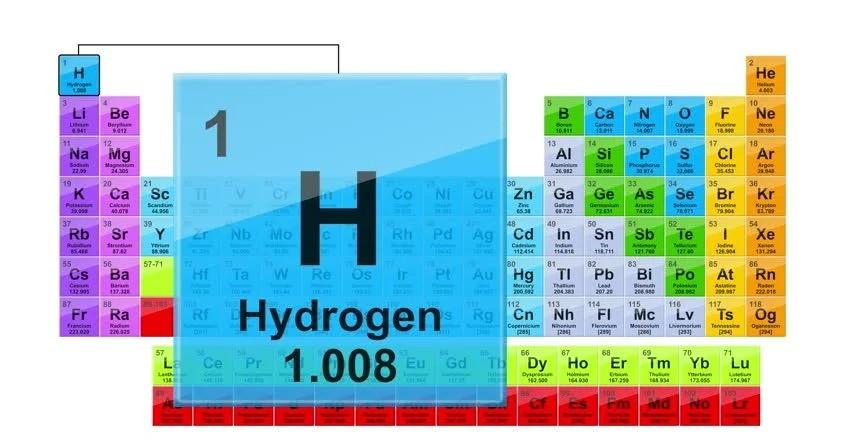Health Benefits of Hydrogen
Hydrogen is the atomic ‘stem cell’ of our universe. All matter, and thus the world in which we live, and ultimately we ourselves, are created from hydrogen!
Fact: “Our body is 62% hydrogen by volume”
Molecular hydrogen occurs naturally in our body. It is also only one atom away from being water. It is naturally produced by our intestinal flora upon digestion of fibers.
Being the smallest element the hydrogen molecule can get everywhere in our body including the cell membrane, the blood brain barrier, mitochondria cells and even into a cell’s nucleus.

Since the 2007 discovery by Dr Shigeo Ohta that molecular hydrogen (H2) has selective antioxidant properties, multiple studies have shown that H2 has beneficial effects in as many as 170 human diseases.
Studies have focused on its role in reduction of oxidative stress and redox homeostasis partly mediated via the Nrf2 pathway, which regulates levels of glutathione, superoxide dismutase, catalase, etc. H2, like other gaseous-signalling molecules (e.g. NO*, CO, H2 S), modulates signal transduction, protein phosphorylation, and gene expression, which provides its anti-inflammatory, anti-allergy, and anti-apoptotic protective effects.

Here are some of the health and therapeutic benefits of molecular hydrogen:
- Reduces inflammation
- Reduces muscle fatigue
- Promotes good microbes in the gut
- Improves skin quality
- Slows aging process
- Slows muscle degeneration
- Enhances mitochondrial function
- Improves mood, anxiety, and autonomic nerve functions
In this 45-min long interview below, Tyler LeBaron, Founder of the science-based nonprofit Molecular Hydrogen Institute, explains how molecular hydrogen helps fight inflammation, boost energy, and protect the health of your brain. And studies show it could make a huge difference for the health of your entire body:
How Hydrogen Act As An Antioxidant
We get oxidative stress due to an imbalance between the production of free radicals, known as reactive oxygen species (ROS), and antioxidant defenses that counteract the negative effect of free radicals. Free radicals are molecules that contain oxygen whose function is to help your body kill invading pathogens and microbes. They have one or more unpaired electrons which means that they are highly reactive with other molecules. In some circumstances free radicals try to stabilize by stealing electrons from cell components such as DNA, lipids, and proteins. This creates a chain reaction of molecules stealing an electron from other molecules. This process is known as oxidative damage. Uncontrolled oxidative stress can accelerate the aging process and may contribute to the development of a number of conditions such as:- Cancer
- Alzheimer’s disease
- Parkinson’s disease
- Diabetes
- Cardiovascular conditions such as high blood pressure, atherosclerosis, and stroke
- Inflammatory disorders
- Chronic fatigue syndrome
How Do We Ingest Hydrogen To Enjoy Its Benefits?
You can inhale hydrogen gas, bathe in hydrogen-rich water, or injecting hydrogen-rich saline into the body. By far the easiest way is to drink water that is infused with hydrogen, more commonly called hydrogen water.
This is very similar to how carbonated beverages contain dissolved carbon dioxide gas (CO2).
Human Research
Although the research on hydrogen looks promising in the cell or animal models, more long-term clinical trials are required to confirm its efficacy in humans. As of this writing there a total of 40 human studies; few are in a double-blinded placebo controlled randomized fashion with sufficient subject numbers.
A few of these clinical studies suggest that ingestion of hydrogen-rich water was beneficial for metabolic syndrome, diabetes, and hyperlipidemia.
Another 1-year placebo-control clinical study suggested that hydrogen-rich water is beneficial for Parkinson’s disease, while other clinical studies suggest significant benefits for rheumatoid arthritis, mitochondrial dysfunction, exercise performance, athletic recovery time, wound healing, reductions of oxidative stress from chronic hepatitis B, improvements to blood flow, and periodontitis, in dialysis, and also the quality of life in patients receiving radiotherapy for tumors and others.
There have been an additional 15+ human studies completed with promising results. More human studies are required to determine proper dosage, timing, method of administration, and for which diseases, and potentially genotypes, hydrogen is most effective.
However, research in the benefits of hydrogen for humans is still in its infancy. More data is required before we can scientifically claim any real benefit, but the preliminary data is intriguing. The research on disease models, mechanisms of action, and clinical studies are particularly relevant because the high safety profile of molecular hydrogen make it a good choice.
Here’s a comprehensive collection of studies relating to molecular hydrogen and its health benefits.
Other references:
Studies are continually being published about the benefits of hydrogen as an antioxidant in the prevention of many diseases. Below are a few more for your reference: